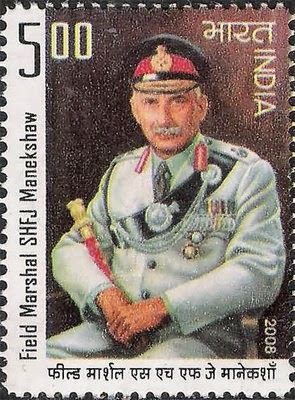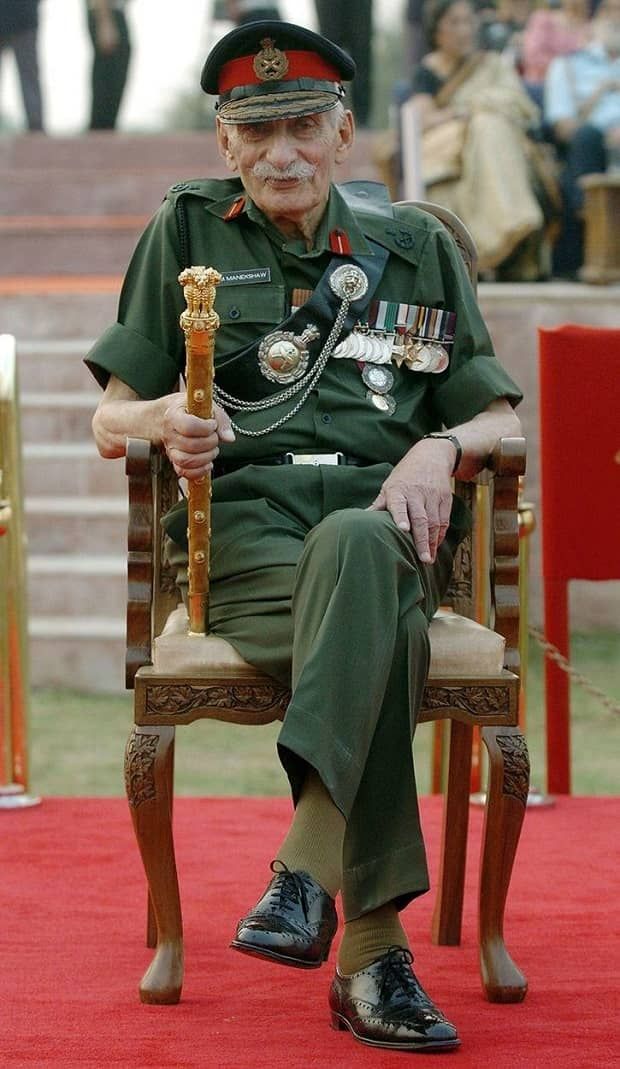Explore the life and legacy of Field Marshal Sam Manekshaw, India’s hero of the 1971 war. He was known for his bravery, leadership, and strategic brilliance.

Introduction
When we think of great military leaders, the name Sam Manekshaw immediately stands out in the annals of Indian history. Fondly known as “Sam Bahadur,” meaning Sam the Brave, he is remembered for his unmatched legacy. He was both a military tactician and a true patriot. Manekshaw’s courage, leadership, and sharp decision-making abilities were crucial. They played a key role in India’s victory during the 1971 India-Pakistan War. These qualities also contributed to the creation of Bangladesh.
Sam Manekshaw’s life was not just about military prowess. It was about his passion for his country. His life demonstrated the integrity of his leadership and a fierce dedication to those under his command. Let’s take a deep dive into the life and remarkable journey of this legendary figure.
Early Life and Military Beginnings
Sam Hormusji Framji Jamshedji Manekshaw was born on April 3, 1914, in Amritsar, Punjab, in a Parsi family. From a young age, he showed an intense desire to serve in the military. Although his father initially discouraged his ambition, Sam remained determined. His determination led him to join the Indian Military Academy (IMA) in Dehradun in 1932.
At the Indian Military Academy, Manekshaw’s character and leadership began to shine. He was commissioned as an officer in the British Indian Army in 1934. He quickly gained recognition for his tactical brilliance. During World War II, Sam Manekshaw fought with distinction in Burma (modern-day Myanmar). He earned a reputation for bravery. He was also known for his smart strategy.
The Making of a Leader: Rising Through the Ranks
Manekshaw’s rise through the ranks of the military was marked by hard work. His sharp intellect played a significant role. He also had an ability to inspire those around him. He was promoted several times, but it wasn’t just his military skills that set him apart. He connected with soldiers. He motivated them even in the direst of situations. These qualities made him a leader that others wanted to follow.
In 1947, when India gained independence, Manekshaw had already risen to the rank of Lieutenant Colonel. Over the years, he received promotions through the ranks. He always gained the trust and respect of his fellow officers and troops.
By 1969, Manekshaw became the Chief of Army Staff (COAS). In this position, he led India’s armed forces. It was a critical time in its history during the 1971 India-Pakistan war.
The 1971 War: A Masterstroke of Strategy
The year 1971 was a defining moment in India’s military history. Sam Manekshaw’s leadership played a pivotal role in India’s victory. The conflict led to the creation of Bangladesh. Immense political tension preceded it. The Pakistan Army’s atrocities occurred in East Pakistan (now Bangladesh).
As Chief of Army Staff, Sam Manekshaw was the architect of India’s military strategy during the war. He famously advised Prime Minister Indira Gandhi to wait for the right moment to strike. Many leaders were urging for immediate military action. However, Manekshaw insisted that India should act only when fully prepared. This would ensure that the country’s army achieves maximum success.
He was not just focused on battlefield tactics. His strategic foresight included understanding the political implications of the war. He also understood the social implications. Sam Manekshaw played a crucial role in keeping morale high. He maintained coordination among India’s various branches of the military. He ensured that everyone worked towards a common goal.
Under his leadership, the Indian Army achieved a decisive victory in just over two weeks. On December 16, 1971, Pakistan surrendered, leading to the birth of Bangladesh. Manekshaw’s brilliance in planning contributed significantly. His leadership on the ground also played a crucial role. These factors made this victory one of the most impressive military triumphs in Indian history.
Sam Bahadur: The Man Behind the Title
It was during the 1971 war that Sam Manekshaw earned the affectionate title of “Sam Bahadur” (Sam the Brave). His soldiers admired him not just for his tactical genius but for his compassion and sense of humor. He had a unique way of inspiring his troops. Even in the middle of a war, his charismatic personality stood out. His ability to stay calm under pressure made him beloved by those who served under him.
One story captures the essence of Manekshaw’s leadership. A journalist asked him if he was worried about the war. He famously responded, “I am not afraid of war. I’m afraid of making mistakes.”
His leadership was not just about military brilliance. It was about a man who truly understood the pulse of his people. He also connected with his army. He led by example, showing courage and conviction at every turn.
The Highest Rank: Field Marshal
In recognition of his exceptional service, Sam Manekshaw was promoted to the rank of Field Marshal in 1973. This is the highest rank in the Indian Army. He became the first and only Field Marshal in India’s history. This honor was a testament to his service to the nation. It also recognized his unshakable dedication. His extraordinary contribution to the military was also acknowledged.
Even after his retirement in 1973, Sam Manekshaw remained an important figure in Indian public life. He continued to offer his wisdom to the government and the military, even if he was no longer actively serving.
His legacy was one of courage, brilliance, and unwavering dedication to his country.
Sam Manekshaw’s Leadership Philosophy
What made Sam Manekshaw such an exceptional leader?
It wasn’t just his strategic mind or his military experience—it was his profound understanding of leadership and the human spirit. Manekshaw had a unique ability to inspire people, not through orders or authority, but through his own example. He believed in listening to others, considering all perspectives, and making decisions based on logic, not emotion.
One of his most famous quotes reflects his leadership philosophy. He said, “If a man says he is not afraid of dying, he is either lying. Or he is a Gurkha.” Manekshaw always had a witty remark up his sleeve. This trait made him not just a great general but also a beloved figure among his men. His leadership was marked by a fine balance of strength and empathy. These qualities won him the respect of his colleagues. They also earned him the respect of his subordinates.
A Lasting Legacy
Sam Manekshaw passed away on June 27, 2008, but his legacy remains strong. He is remembered as a military genius. He understood the complexities of warfare. He also valued the importance of human connection in the military.
His life wasn’t just about battlefield victories. It was about the values he instilled in his soldiers. These include honor, discipline, and an unshakable belief in serving the nation with all one has. His impact continues to be felt in the Indian Army and among military leaders around the world.
Conclusion: Sam Bahadur Lives On
Field Marshal Sam Manekshaw, or Sam Bahadur, remains an iconic figure in the history of India. His military brilliance, leadership, and his devotion to his country set him apart as a true national hero. He led India to victory in 1971. He also shaped the future of the Indian Army. He set high standards for generations to come.
His life is a reminder that leadership is not just about strategy and decisions. It’s about courage, wisdom, and an unyielding commitment to the greater good. Sam Bahadur’s legacy is one of resilience, bravery, and dedication, making him a true icon in India’s military history.
Would you like to share your thoughts or experiences related to Field Marshal Sam Manekshaw? Let us know in the comments below!
Read for more stories of inspiring leadership. Discover individuals who made an impact in The Man Who Made Kindness Famous in China. Alternatively, you can discover Simple Life, Big Dreams: A P J Abdul Kalam’s Legacy.
Stay connected with America112 for the latest updates and discussions on global matters.

